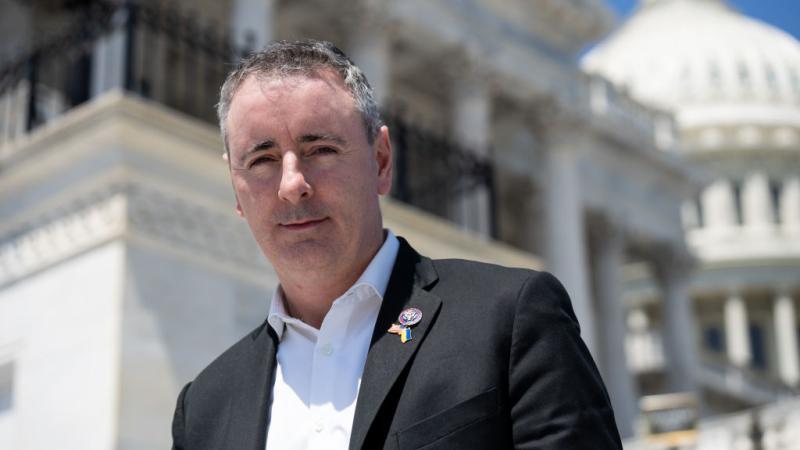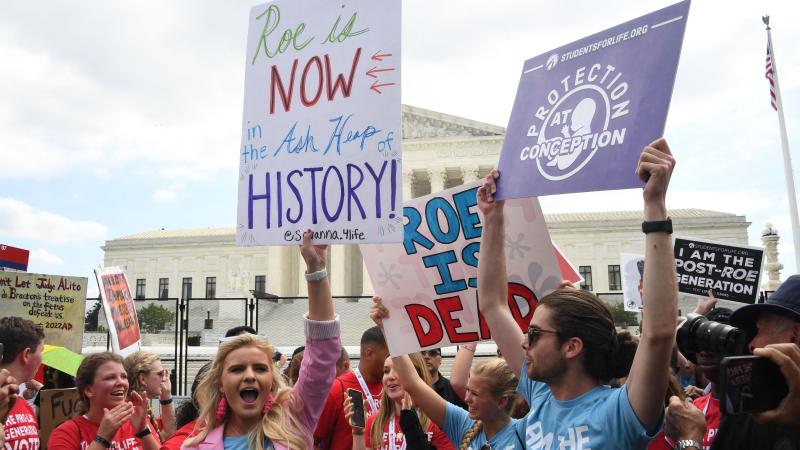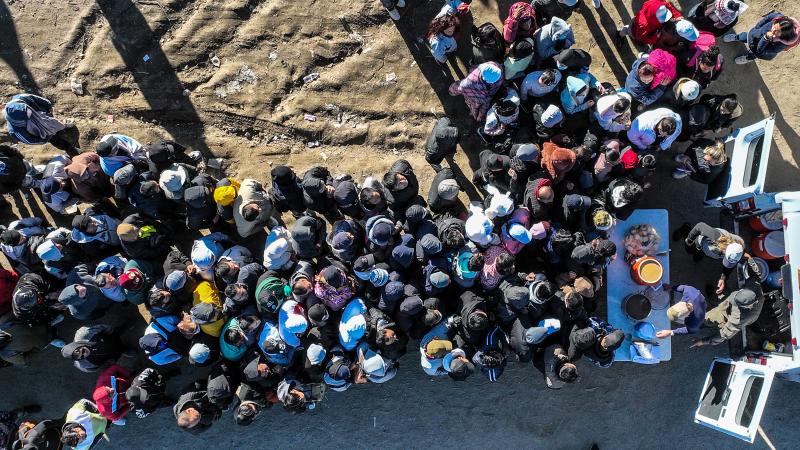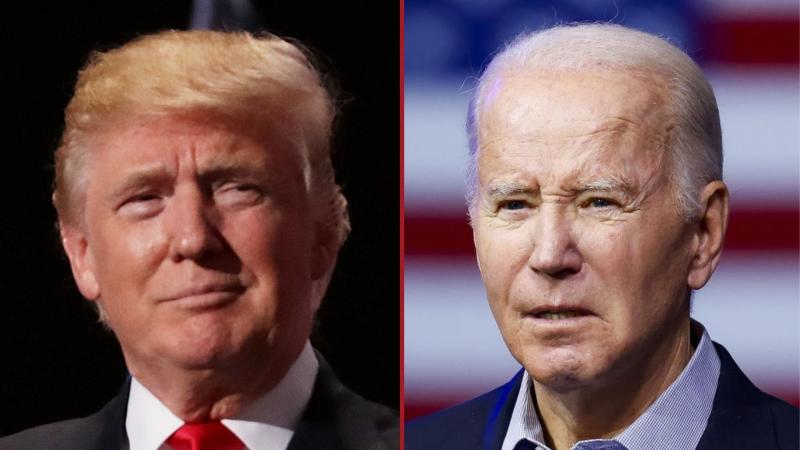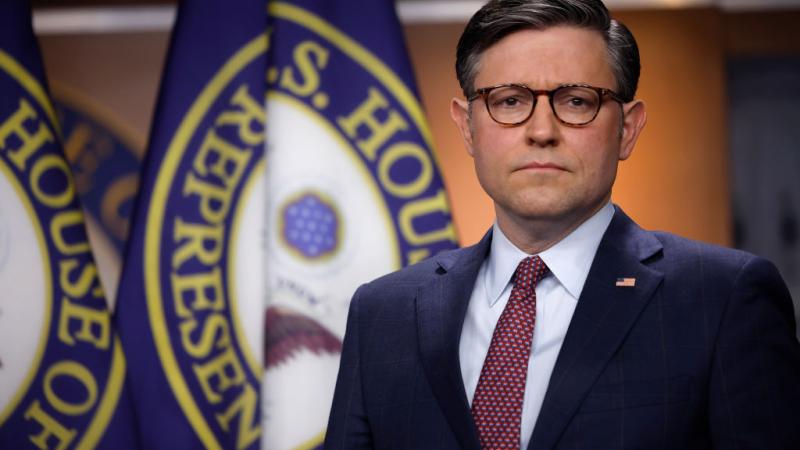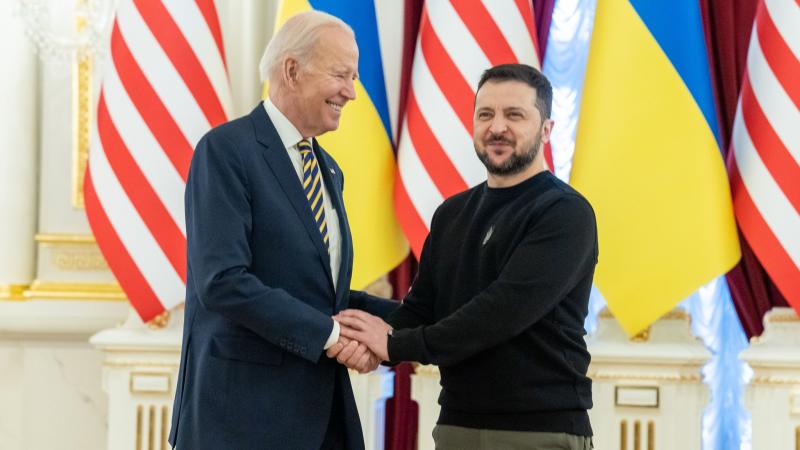‘Granny farming’: How Democratic ballot harvesting could leave seniors vulnerable to coronavirus
Democrats defend the practice as a way to ensure the elderly and those too busy with work don't lose the opportunity to vote.
We know how COVID-19 has wreaked havoc on senior citizen nursing homes across the country, but as November’s general election inches forward, there’s a political virus that very well could be in the air as well: “granny farming,” a practice in which political operatives seek out massive groups of senior citizens to help them request mail-in ballots and then assist them in filling their ballots out when they arrive.
In his book “Fraud: How the Left Plans to Steal the Next Election,” author and researcher Eric Eggers details examples of how this process is carried out.
According to Eggers, one blind man in Florida testified, "No, I didn't fill out this ballot. Somebody filled it out for me against my wishes.”
Eggers told Just The News that in another case, a woman kept a notebook showing thousands of interactions describing how she’d go collect ballots from seniors and then deliver them to paid political campaigns.
“Granny farming” is one form of a controversial voting mechanism known as “ballot harvesting,” whereby a third party is allowed to deliver or submit a ballot on another’s behalf. California is the only state where it is legal. As for the rest of the states, there’s a smorgasbord of laws, but for the most part, many of them don’t have legislation governing it one way or the other. Congressional Democrats in Washington want to change that.
During the coronavirus pandemic, House Speaker Nancy Pelosi has been pushing funding for all states to allow for mail-in balloting, including third party ballot harvesting. The text of House bill 6379, introduced in March, says that states “shall permit a voter to designate any person to return a voted and sealed absentee ballot to the post office” and “may not put any limit on how many voted and sealed absentee ballots any designated person can return to the post office.”
That language was eventually stripped from the first coronavirus stimulus bill after Republicans said it was a deal-breaker, but Pelosi and her colleagues say they’re determined to push through.
"We have a different value system about what voting means to a democracy," Pelosi told reporters last month. "Clearly, we want to remove all obstacles to participation."
Democrats see ballot harvesting as a way to make sure the elderly or those too busy with work are not disenfranchised from America’s electoral system. As for the broader issue of nationwide mail-in balloting, they believe it only makes sense amid fears about the spread of COVID-19.
“Nobody should be forced to choose between their health and their right to vote,” Democratic National Committee chair Tom Perez told reporters on a conference call April 17. "This shouldn't be a right vs. left issue. This is a right vs. wrong issue.”
But Eric Eggers argues that more mail-in balloting means more ballot harvesting, which in turn could put more American lives at risk.
“The legalization of ballot harvesting,” said Eggers, “in reality would have young, potentially asymptomatic carriers of the coronavirus going door-to-door and interacting with these vulnerable populations, these senior citizens, potentially impairing their actual health.”
Dr. Marion Mass, a Duke-educated physician who founded the advocacy organization Practicing Physicians of America, told Just the News that inadeuqate data and reporting statistics about the true extent of the coronoavirus — both asymptomatic carriers and those symptomatic — makes it difficult to definitively state that an outside ballot harvester would likely infect seniors. However, she said given the current societal climate, a ballot harvester could trigger stress levels that could leave seniors more susceptible to coronavirus.
"Whenver you're getting people riled and upset and excited, the cortisol is flying, and cortisol is a known immunosupressant," said Mass, who practices at Children's Hospital of Philadelphia. "At this moment in time, everyone is so worked up about this ... this is just fear like I've never seen before. It's being stoked and fed, and so on. And so whenever there's fear, your cortisol level goes up. It's like your stress hormones coming through your adrenal glands, and that immediately dampens your immune system. And seniors already have low immune systems. So going out and ballot harvesting, I don't think it's going to take the seniors corona, but the perception of that is probably going to be worse."
Legalizing nationwide ballot harvesting is one battle under a larger umbrella of overall mail-in balloting. Conservatives argue that mailing ballots to every single American is inviting rampant fraud. A Pew Research Center study shows roughly 24 million voter registrations are no longer valid. According to Judicial Watch, there are 462 counties in America where voter registrations outnumber the amount of people who actually live in that county. Many of those jurisdictions are in key battleground states.
Progressives and Democrats say there is a difference between poorly maintained voter registration rolls and actual voter fraud by mail-in balloting. Washington State is exclusively a mail-in ballot state, and Tina Podlodowski, chair of the Washington State Democratic Party, says the system works just fine.
"In Washington, we know that vote-by-mail is safe and secure, and any suggestion that it leads to voter fraud is simply not based in reality or fact,” she said. “We've got 15 years of experience to prove it.”
But there still seems to be consensus that no matter whether you believe mail-in balloting leads to widespread fraud or not, the chances for it to occur are higher. In 2005, both former President Jimmy Carter and James A. Baker III, secretary of state under President George H.W. Bush, signed the Commission on Federal Election Reform and concluded, “Absentee ballots remain the largest source of potential voter fraud.”
Renowned appellate court judge and legal theorist Richard A. Posner put it this way in a 2004 voting rights case: “Absentee voting is to voting in person as a take-home exam is to a proctored one.”
Just the News White House correspondent Carrie Sheffield contributed to this article.
The Facts Inside Our Reporter's Notebook
Links
- Fraud: How the Left Plans to Steal the Next Election
- HR 6379
- The Hill on Pelosi defense of mail-in voting
- Fox News: Tom Perez comments on expanding voting-by-mail
- Pew Research study
- National Review article "Ghost Voters"
- Tom Perez applauds Washington State vote-by-mail
- New York Times report on error, fraud, and mail-in balloting
- Judge Posner quoted in Clarence Page commentary



